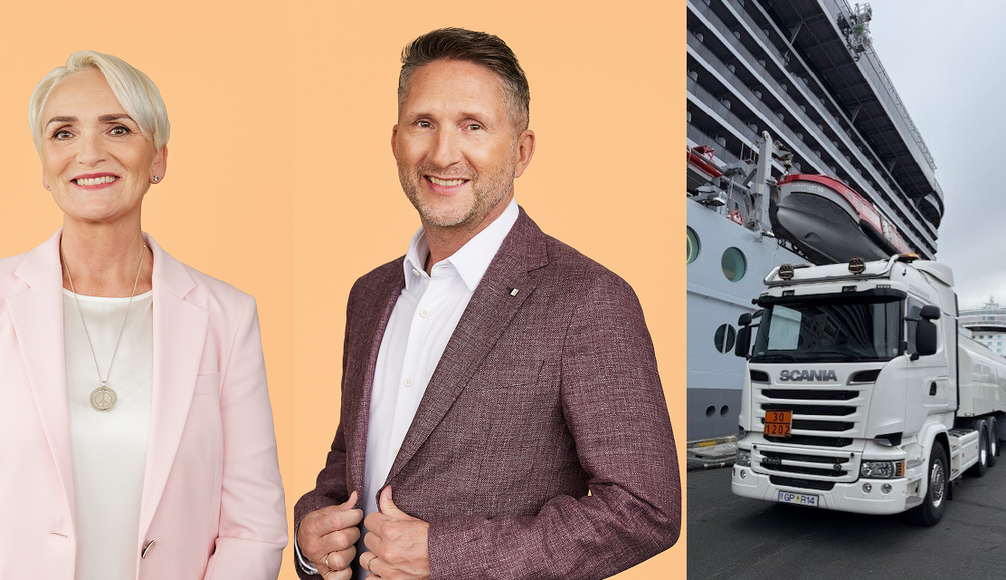
Skeljungur supplied 100 tonnes of the high‑quality biofuel sourced from Finnish company Neste. The fuel is a hydrotreated vegetable oil (HVO) made entirely from renewable materials like used cooking oil and animal fat. According to Skeljungur’s announcement, this biofuel can reduce greenhouse gas emissions by 75%–95% compared to conventional fossil fuels, and by roughly 90% when compared to marine-grade fuel.
Þórður Guðjónsson, CEO of Skeljungur, was present on board during the customary plaque exchange ceremony marking the vessel’s arrival. He remarked:
“This is the first time biofuel has been sold directly onto a cruise ship in Iceland. The backstory began when Unnur Elva Arnardóttir (Skeljungur’s operations director) and I met with Jill Stoneberg, who heads corporate sustainability at Virgin Voyages, in Miami. We told her that we could supply pure renewable biofuel in Iceland — which surprised her, as sourcing such fuel in foreign ports is challenging. We then made the decision to supply biofuel to the Scarlet Lady upon its arrival in Reykjavík—that's why we’re here today.”
Jill Stoneberg added that Virgin Voyages is committed to achieving net-zero emissions by 2050, starting with the use of biofuel produced from waste materials alongside conventional fuel. She expressed satisfaction with the Icelandic supply, hoping that more ports will offer biofuel options to cruise ships in the future.
The cruise industry has set ambitious targets to become carbon‑neutral within the next 25 years, and new vessels are being designed accordingly. Scarlet Lady — launched on her maiden voyage on 14 February 2020 — is one such ship. It features 1,408 passenger cabins and 813 crew cabins, with a maximum capacity of 4,400 people. During its Reykjavík stop, it carried approximately 2,770 transit passengers, all of whom disembarked to stay in hotels before flying onward, while a new group of passengers came on board for its next leg.
Powered by four Wärtsilä 46F diesel engines generating a total of 64,000 horsepower (or 48 MW), the ship can reach speeds of up to 22 knots (about 41 km/h). Since 2022, Virgin Voyages has been gradually increasing the use of biofuel across its fleet, and the vessel’s engines are engineered to burn a variety of fuel types, including biofuels.